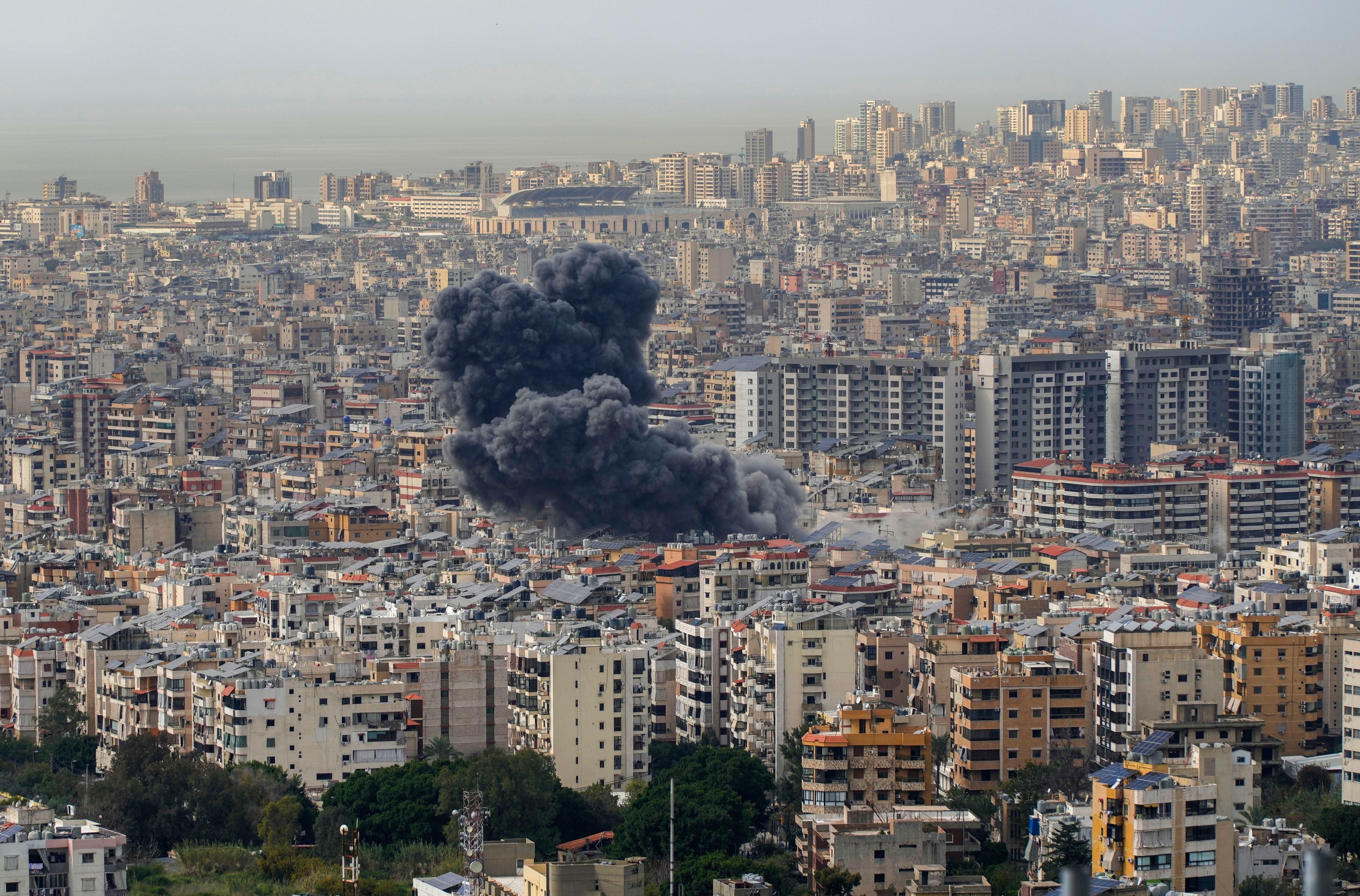Israel strikes Beirut for the first time since a ceasefire ended the latest Israel-Hezbollah war
BEIRUT, Lebanon (AP) — Israel has launched an attack on the Lebanese capital, Beirut, for the first time since a ceasefire ended the latest Israel-Hezbollah war in November.

Associated Press reporters in Beirut heard a loud boom and witnessed smoke rising from the area that Israel's military had vowed to strike.
It came after Israel's army urgently warned people to evacuate parts of a Beirut suburb, vowing to retaliate against strikes which it said were launched from Lebanon into northern Israel.
Israel’s defense minister said Friday that if there was no peace in Israel’s northern communities there would be no peace in Beirut either.
Hezbollah denied firing the rockets at northern Israel, and accused Israel of seeking a pretext to continue attacking Lebanon.
Lebanon’s government ordered all schools and universities in Beirut’s southern suburb of Hadath to close for the day. Residents were seen fleeing the area in cars and on foot ahead of the strike.
It was the first strike on Beirut since a ceasefire took hold on Nov. 27, 2024, between Israel and the Hezbollah militant group, although Israel has struck targets in southern Lebanon almost daily since then.
Hezbollah began launching rockets, drones and missiles into Israel the day after Hamas’ Oct. 7, 2023, attack out of Gaza ignited the war there. The Israel-Hezbollah conflict boiled over into all-out war in September as Israel carried out waves of airstrikes and killed most of the militant group’s senior leaders. The fighting killed over 4,000 people in Lebanon and displaced about 60,000 Israelis.
Israeli forces were supposed to withdraw from all Lebanese territory by late January under the ceasefire deal. The deadline was extended to Feb. 18, but Israel has remained in five locations in Lebanon across from communities in northern Israel. Meanwhile, Israel has carried out dozens of airstrikes on southern and eastern Lebanon, saying it attacked Hezbollah, while continuing drone attacks that have killed several members of the militant group.
Last week, Israeli airstrikes on several locations in Lebanon killed six people.
The UN Special Coordinator for Lebanon, Jeanine Hennis-Plasschaert, said the exchange of fire was deeply concerning. “This is a critical period for Lebanon and the wider region,” she said Friday.
According to an Israeli official who was not authorized to speak to the media, Israeli Prime Minister Benjamin Netanyahu was meeting with top security officials to discuss an impending strike on the capital.
The escalation comes as Israel ended its ceasefire with Hamas by launching a surprise wave of strikes that killed hundreds of people in Gaza. Earlier this month, Israel halted deliveries of food, fuel, medicine and humanitarian aid to Gaza's roughly 2 million Palestinians.
Israel has vowed to escalate the war until Hamas returns 59 hostages it still holds — 24 of them believed to be alive. Israel is demanding that the group give up power, disarm and send its leaders into exile.
Hamas has said it will only release the remaining captives in exchange for Palestinian prisoners, a lasting ceasefire and an Israeli withdrawal from Gaza.
The war was triggered by Hamas' Oct. 7, 2023, attack into Israel, in which Palestinian militants killed some 1,200 people, mostly civilians, and abducted 251.
Israel's retaliatory offensive has killed over 50,000 people, according to Gaza's Health Ministry, which does not say how many were civilians or combatants.